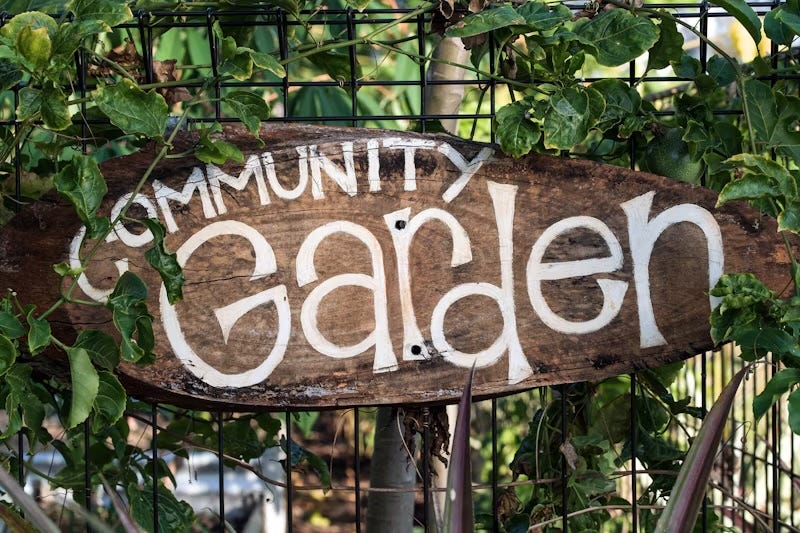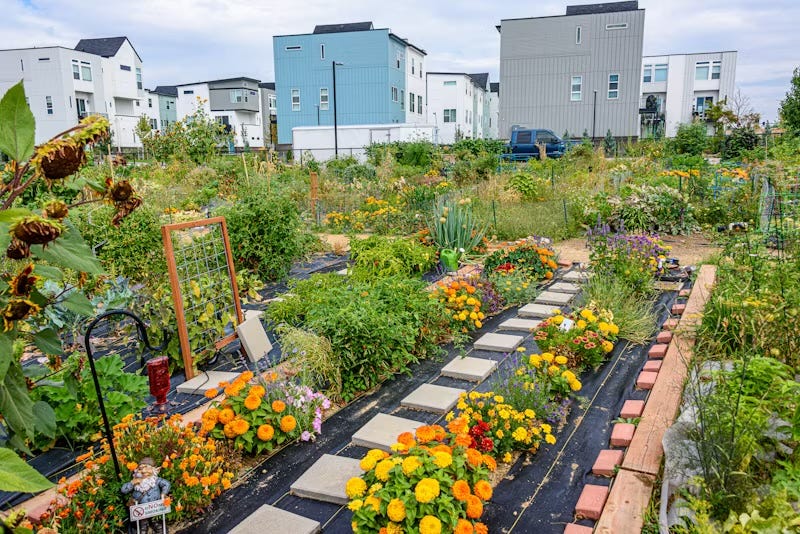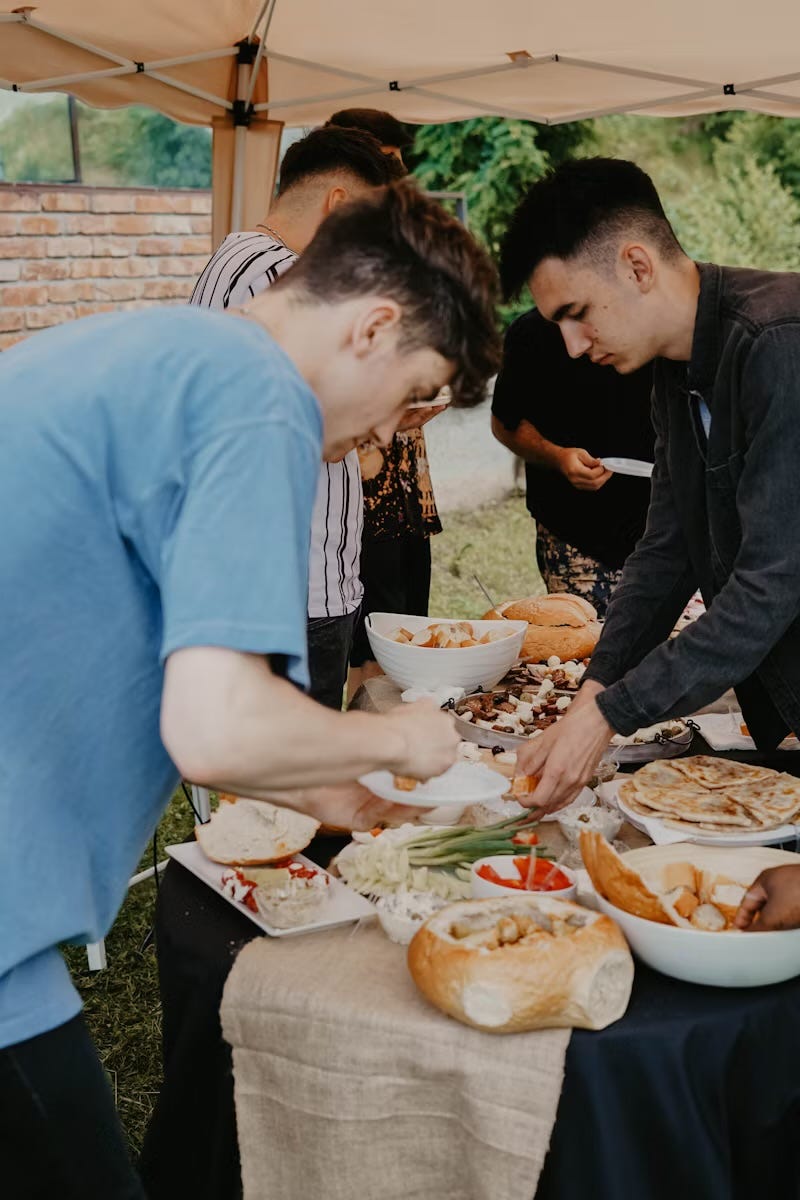The Quiet & Powerful Protest of Growing Food Together
Taking Back our Power one Garden at a Time.
In turbulent political times, it’s easy to feel helpless. When governments seem to be unraveling the very fabric of stability, it’s tempting to look outside ourselves for answers. But real power doesn’t live in the halls of government—it lives in the quiet strength of communities.
One of the most radical acts of protest we can engage in right now is growing our own food. Tending to the earth, harvesting what we plant, and sharing that abundance with others is a direct rejection of systems designed to keep us vulnerable and dependent. It’s a quiet but profound reminder that we can care for ourselves and each other.
When you teach someone to grow their own food, you’re not just sharing knowledge—you’re giving them agency. You’re saying: You are not powerless. You are connected to the earth, to the seasons, to your community—and that is where real strength lies.
The Hidden Food Desert
What I’ve discovered over time is that the middle-class food desert is very real. You walk into a typical grocery store and wander the inner aisles—not the outer edges where the simple whole foods are—but the processed food aisles, where nearly everything is packaged, refined, and marketed to you as “convenient.”
The shelves are full of ultra-processed, nutrient-poor foods, loaded with sugars, unhealthy fats, and preservatives—products that aren’t just bad for our bodies, but bad for our minds and spirits too. And they’re expensive. The irony is that the cheapest, most convenient food is often the least nourishing.
It’s even more stark in lower-income areas, where green food and organic options are harder to find. You walk into a corner store in a food desert and see rows of chips, sodas, and packaged snacks—but no fresh produce, no whole grains, no clean protein. These are the same foods that contribute to chronic disease, metabolic dysfunction, and long-term health issues.
This is no accident—it’s part of a system designed to keep people dependent and unhealthy. Processed food manufacturers and fast-food corporations thrive on the idea that people are too busy, too tired, and too overwhelmed to cook for themselves.
But the truth is, real health—and real strength—comes from knowing how to feed yourself and your community. Teaching people to grow their own food, to cook from scratch, to reconnect with the rhythms of the earth—that’s how you break the cycle. That’s how you build real power.
Remember- The most elegant prescription for a healthy body, mind and spirit is really at the end of your fork.
Functional Nutrition is the Foundation of Strength
This is the core of functional nutrition: health isn’t just about eating the “right” foods—it’s about understanding how food nourishes your body at the cellular level, how the soil your food is grown in affects your microbiome, how stress and connection influence digestion, and how nutrient density supports energy and resilience.
Functional nutrition teaches us that food is information—every meal sends signals to your body about how to function. Ultra-processed, nutrient-poor food sends the wrong signals: inflammation, insulin resistance, and metabolic dysfunction. Whole, real food, grown close to home and prepared with care, sends the right signals: balance, strength, and repair.
This is why growing your own food is so powerful. It’s not just about food security—it’s about reclaiming your health at the deepest level. When you teach someone to grow and cook with whole, seasonal ingredients, you’re giving them more than just nourishment—you’re giving them the tools to build true resilience.
Building Strength Through Community
In times like these, when the larger structures feel shaky, the most important thing we can do is turn toward each other. Look around you:
• Who among your neighbors might need a meal?
• Who’s struggling to keep up with childcare or care for aging parents?
• Who’s isolated and in need of connection?
Building community isn’t just about growing food—it’s about growing trust, growing resilience, growing a sense of belonging. It’s about making sure that the young and the elderly are cared for, that no one is left behind. That’s how societies survive when political systems falter.
It’s tempting to get caught up in outrage or despair—but that’s exactly what keeps us fragmented and ineffective. Real protest is turning toward each other. Real protest is making sure that your neighbor is fed and that the children in your community feel safe and supported. Real protest is knowing how to sustain yourself—not just with food, but with connection.
Your country lives within you. Its values live within you. The systems may be failing, but we don’t have to fail each other.
Grow your own food. Teach others to do the same. Plant a community garden. Have Seasonal Festivals. Play Music. Break bread together. Start a book club. Write letters together. Trade stories. Take care of each other.
The quiet revolution happens in backyards and kitchens, around shared tables, and in the steady seasonal rhythm of planting and harvest. This is how we reclaim power—not by tearing down, but by growing up and growing together.
With affection always,
Beth








